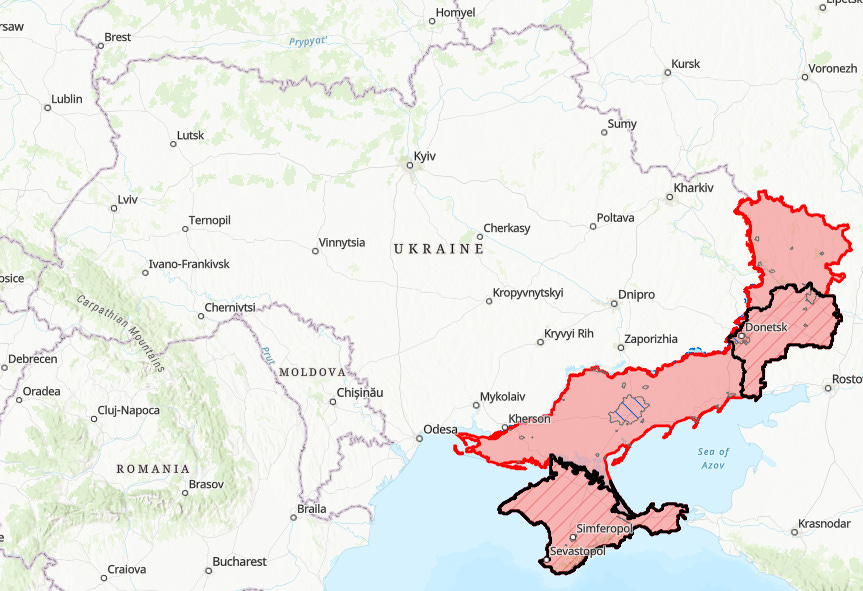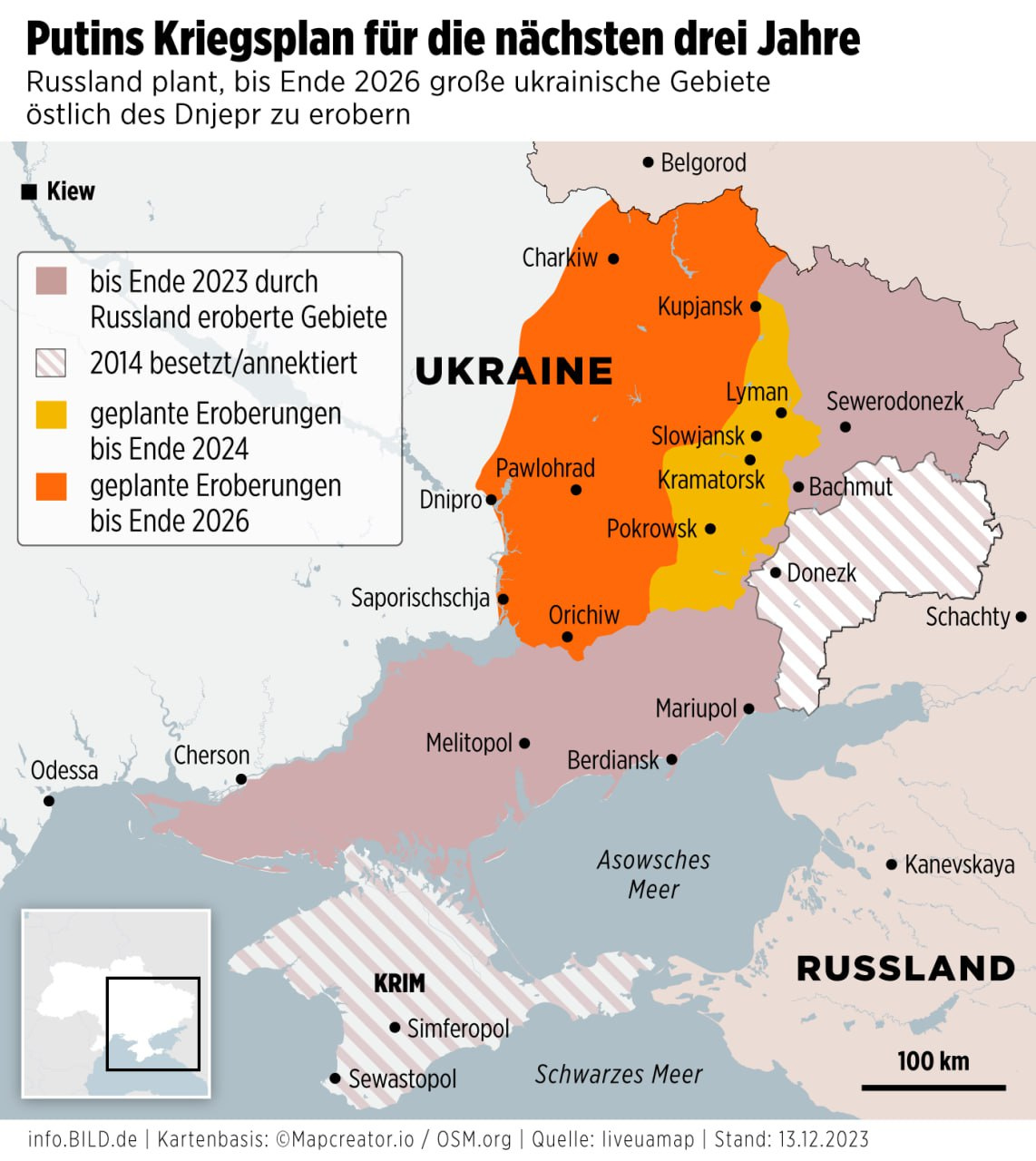Notebook: To the Viktor go the spoils
Neutering Orbán, beating Putin, and map-reading for protestors
Recently, a couple of readers told me politely that I don't publish often enough, and they’re not wrong. As business demands have grown, I confess that the drive to think through and write longer notes during evenings and weekends has sometimes faltered and I feel like consuming more than producing.
The good news (although I’ll let you be the judge of that) is that not all my consumption is Mick Herron, streaming sci-fi, and the Premier League. I also absorb an unhealthy volume of news, interviews, speeches, commentary, papers, polls, and podcasts. Since some of these are original, funny, or infuriating enough to provoke emails or WhatsApps to friends and family, I’ve decided to bundle these recommendations and Love Actuallys into a 24/2 Notebook if I’m too lazy to publish a chin-stroker.
I hope you don’t hate it. If you do, tell me at tim.jones@242substack.com and I’ll make sure you only receive the Notes and podcasts by email.
Because we can
Why is Hungary’s premier-for-life Viktor Orbán, who represents just 2% of the EU's population, allowed to block critical decisions - as he did once again this week? Two simple reasons: because he and his fans know there will be no consequences, and because the EU's other governments would rather keep the peace than send him to his room.
Orbán knows that obstruction pays. In part, his opposition to opening EU accession talks with Ukraine was venal: he was tired of waiting for €10 billion in withheld EU funding to be wired to friends and family the Hungarian state treasury. To be fair to him, though, conviction also played a part. He assumes correctly that Hungary - like other net budgetary recipients - will become a net contributor once Ukraine joins, so any postponement is a saving. On top of that, he takes the Moscow/Mar-a-Lago side in both wars - the one in Ukraine and the other in the culture. By working with Republicans to delay more than €100 billion in combined US/EU aid to Kyiv, Orbán is being a good soldier.
An incensed Guy Verhofstadt tweeted: “Insane… while Orban continues his fight against Ukraine, he will receive €10 billion and participate in a European Council blocking the opening of accession negotiations… instead of giving him money, we should take away his voting rights!” The outrage of the EU’s leading living federalist is understandable but his remedy is self-indulgent. Suspension of voting rights requires a unanimous decision of EU member states (minus Hungary). While this became easier with the removal from power of the Kaczyńskists in Warsaw, it only takes one member state to disarm Article 7. And that lone wolf can be anyone from another illiberal (Robert Fico, Slovakia) to a national conservative (Giorgia Meloni, Italy) who just dislikes the principle.
Besides, this stopped being about Orbán some time ago - especially after his Fidesz and the further-right Our Homeland won 60% of the national vote at the April 2022 election. Generous political analysts blame Fidesz’s media and institutional dominance and Orbán’s use of wedge referendums for this result. But the Kaczyńskists played the same game this October and look what happened to them. Voters aren’t children. Some are calculating. It may surprise you to learn that not only does the Hungarian opposition favour continued EU membership but so does Orbán's electorate. A Policy Solutions poll conducted in September found that, in the event of a Brexit-style in/out referendum, 72% of Hungarians would opt to remain, including 58% of Fidesz and 55% of Our Homeland voters.
Hungary’s conservatives want to torment the EU while enjoying its main benefits - identified by the poll as fiscal transfers and free movement. They rightly calculate that no price will be paid for Orbán’s behaviour. Continued withholding of discretionary funds is a start; let’s see if he gets the remaining €12 billion in return for pulling his veto on a €50-billion aid package for Ukraine. But this is the bare minimum. Orbán exposes how often member states use EU proceduralism as a reason for not doing things. Ukraine needed F-16 fighter jets so the Dutch and Danes convened a contact group to provide them. If Ukrainians need funding, form a club to get it to them. If Orbán blocks a Russian sanctions package, create a do-it-yourself coalition of the willing. If he’d stuck to his veto on opening accession negotiations, the 26 should have started “shadow talks” using national officials with DG NEAR experience. If member states really want to do something and Orbán is in the way, do it anyway without the EU’s formal structures and bring in the British, Norwegians, Swiss and any other willing partners. Things will get done and, bit by bit, the union will leave Hungary. But do they really want to do something?
Define victory
“Putin is close to victory. Europe should be terrified”. With that headline (7 December), who else could it be but the Telegraph? Con Coughlin, the paper’s defence and foreign affairs editor, warns that the failure of Ukraine’s counteroffensive to make significant territorial gains is sapping US (and therefore European) support. At the same time, the Kremlin is expanding its “meat-assault” headcount in the hope of launching its own offensive.
True, but is that a “victory” that should “terrify” Europe? Scroll down and you get to this: “[W]hile it still remains highly unlikely that Putin will be able to fulfil his goal of conquering all of Ukraine and establishing a puppet regime in Kyiv, any conclusion that results in the Kremlin retaining significant areas of Ukrainian territory will be hailed as a victory”.
If hailing made it so. Speaking on the C dans l'air podcast (7 December), Pascal Boniface, director of the Institute for International and Strategic Affairs (IRIS), rightly said: "What is a victory? What is a defeat? Effectively, you could say it is a defeat for Ukraine if its goal is to recover all the territory lost since 2022 - even since 2014, Crimea - to bring Putin before the International Court of Justice and to obtain war damages. But this goal is unachievable. It is perhaps desirable but it is not obtainable ... Ukraine has lost territory but has acquired a status that it never had before the war”.
Source: ISW/Critical Threats interactive maps
Exactly. That red shading has hardly moved in a year but that big white thing to its left is now a united nation about to start EU accession negotiations and a de facto NATO member with the continent’s essential military. Putin could retake some extra land but he never wanted eastern Donbas in the first place - especially not the costly wasteland his local gangsters have turned it into. He wanted to “restore” Ukraine and Belarus into a Greater Russia.
It is imperative that Ukraine at least maintains that line of contact and can only do so with continued weapons supplies. A credible report from Julian Röpcke in Bild (14 December) cites German intelligence findings that the Russians plan to occupy the Donetsk and Luhansk regions and parts of the Kharkiv oblast by the end of next year as a platform for taking the cities of Kharkiv, Dnipro, and Zaporizhzhya by 2026 (see the map below). To achieve this, the Kremlin is prepared to sustain 100,000 casualties a year. Of course, this may be misdirection. But, if it’s a plan, it depends on the proven incapacity of the Putin regime and its military to carry it out. More likely, the line of contact is frozen.
In July, I wrote: “Persuading Zelensky, his military and his people to accept a settlement short of full recapture of all territory lost since 2014 will not be easy. In truth, they have won already”. Settling doesn’t mean conceding the lost territory; Ireland maintained a constitutional claim to the island’s northern six counties for more than 60 years.
Some might argue that leaving Crimea and eastern and southeastern Donbas in Russian hands is a victory for the Kremlin. Without context, you could even say that this is as big a strategic win as the Russian occupations of strips of Georgia and Moldova. Serbian President Aleksandar Vučić implied as much this week by saying (approvingly) that “now everyone understands that they cannot defeat Russia militarily and therefore this will now change fundamentally everything”. No, it won’t. This is nothing like the Georgian war. Ukrainians have defeated Putin strategically and fought Russia to a standstill at enormous cost to Moscow. A US intelligence estimate released this week found that 315,000 Russian troops had been killed or injured in Ukraine - close to 90% of the initial invasion force - and that the war had set back Russia’s military modernisation by 18 years. Strategically, Ukraine is forever lost to Greater Russia and is now rooted in Europe’s economic, democratic, and security architecture.
A 1981 speech from Roy Jenkins, a former European Commission president and British minister, keeps echoing in my head. After finishing second in a parliamentary election in the colours of a brand new party, he said: “I have taken part in 12 elections. This is the first time I have lost in 35 years but it is by far the greatest victory in which I have ever participated”.
Mumble to mumble
Depending on the chanter's goodwill, "from the river to the sea" can mean anything from a call for a multi-ethnic state to replace Israel, the West Bank, and Gaza to the removal “by any means necessary” of the region's Jewish population and the formation of an Islamic state.
The geographical meaning, however, is clear. Or is it? Ron Hassner, a political scientist at the University of California, Berkeley, hired a polling firm to ask 250 students who approved the chant to name the river and the sea. Impressively, 47% correctly named the Jordan River and the Mediterranean. The rest didn’t and some went for the Nile, the Euphrates, the Caribbean, the Dead Sea, or the Atlantic.
Ignorance beats enthusiasm for ethnic cleansing; most respondents wanted Israelis and Palestinians to live peacefully in two states. After they were shown a map revealing that a river-to-sea Palestinian state would leave no room for Israel, three-quarters decided against chanting the slogan again. There’s a Fry and Laurie sketch for everything.
Pick of the pods
Weirdly perhaps, I was a BBC Radio 4 listener from the age of 12. Once the internet made it possible to curate what went into my ears, I transferred the habit to on-demand radio, Audible books, and podcasts. Most of my favourite podcasts - like The Next Level and The Secret Podcast ($) from The Bulwark stable or Mark Galeotti’s In Moscow’s Shadows - are low-tech mono-, dia- or tri-logues. But there is now a growing library of network-quality podcast documentaries like Long Shadow: The Rise of the American Far Right and The Witch Trials of J.K. Rowling.
This week’s pick is one of these: Eight Years’ Hard Labour - a slick and fascinating fly-on-the-wall series from Tortoise Media, who are also responsible for the excellent Unforgivable: Boris Johnson and Covid’s second wave. Made and presented by David Aaronovitch - with Catherine Neilan and Valerio Esposito - Eight Years’ Hard Labour goes behind the scenes of the near-death and resurrection of the British Labour Party since 2015. It’s all good but episode five (The Revolution Defeated) on the internal Brexit wars is my winner.






Notes = good. Keep 'em coming.